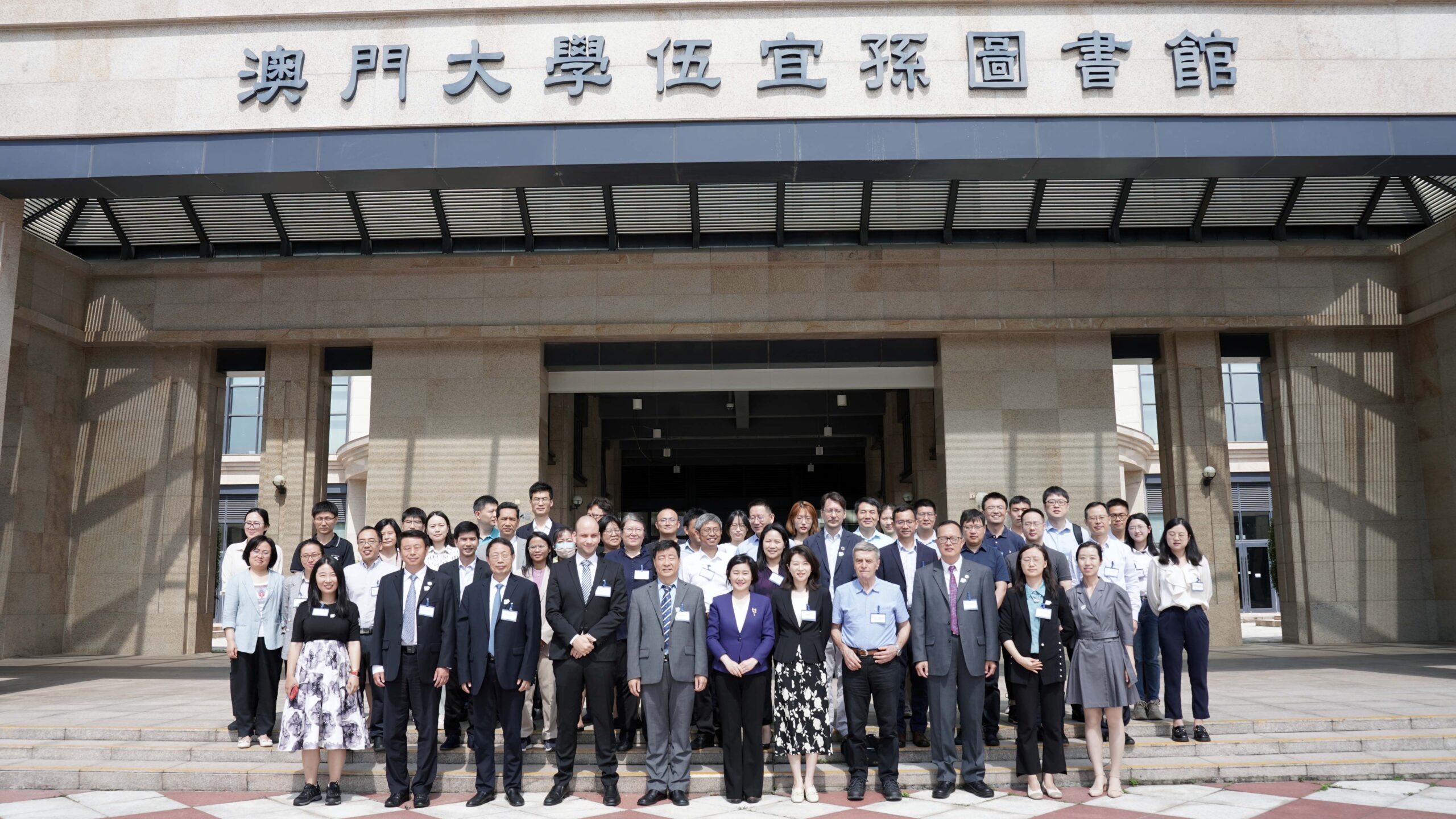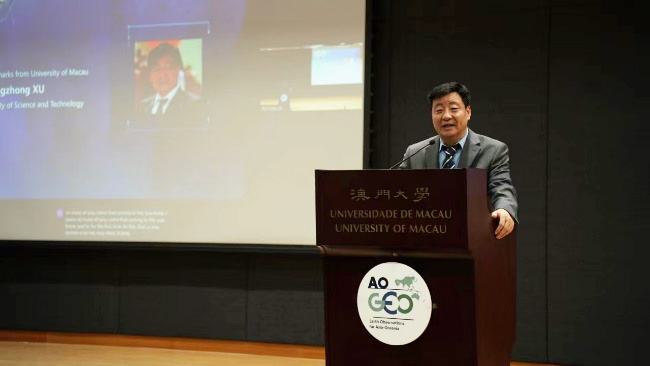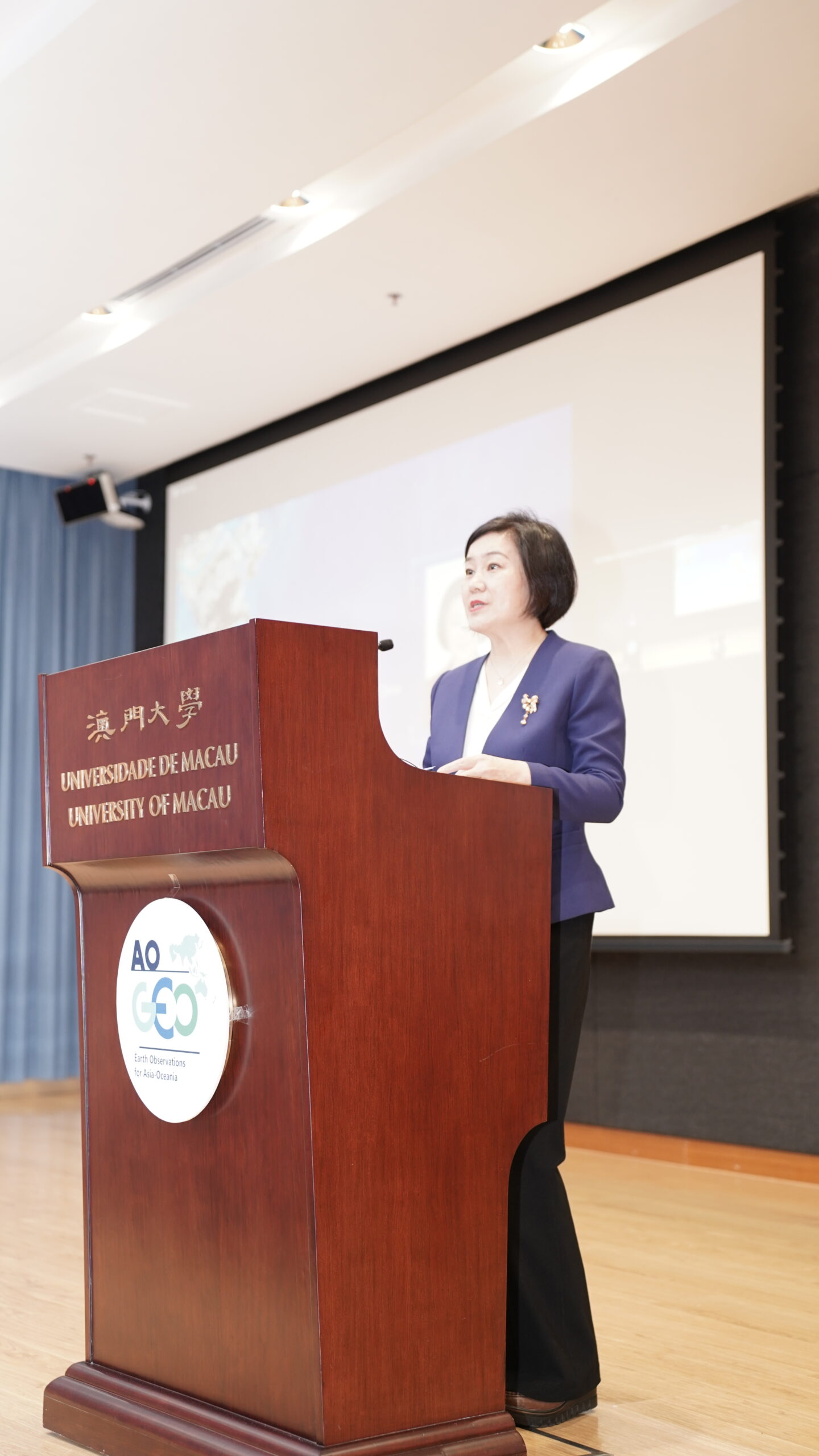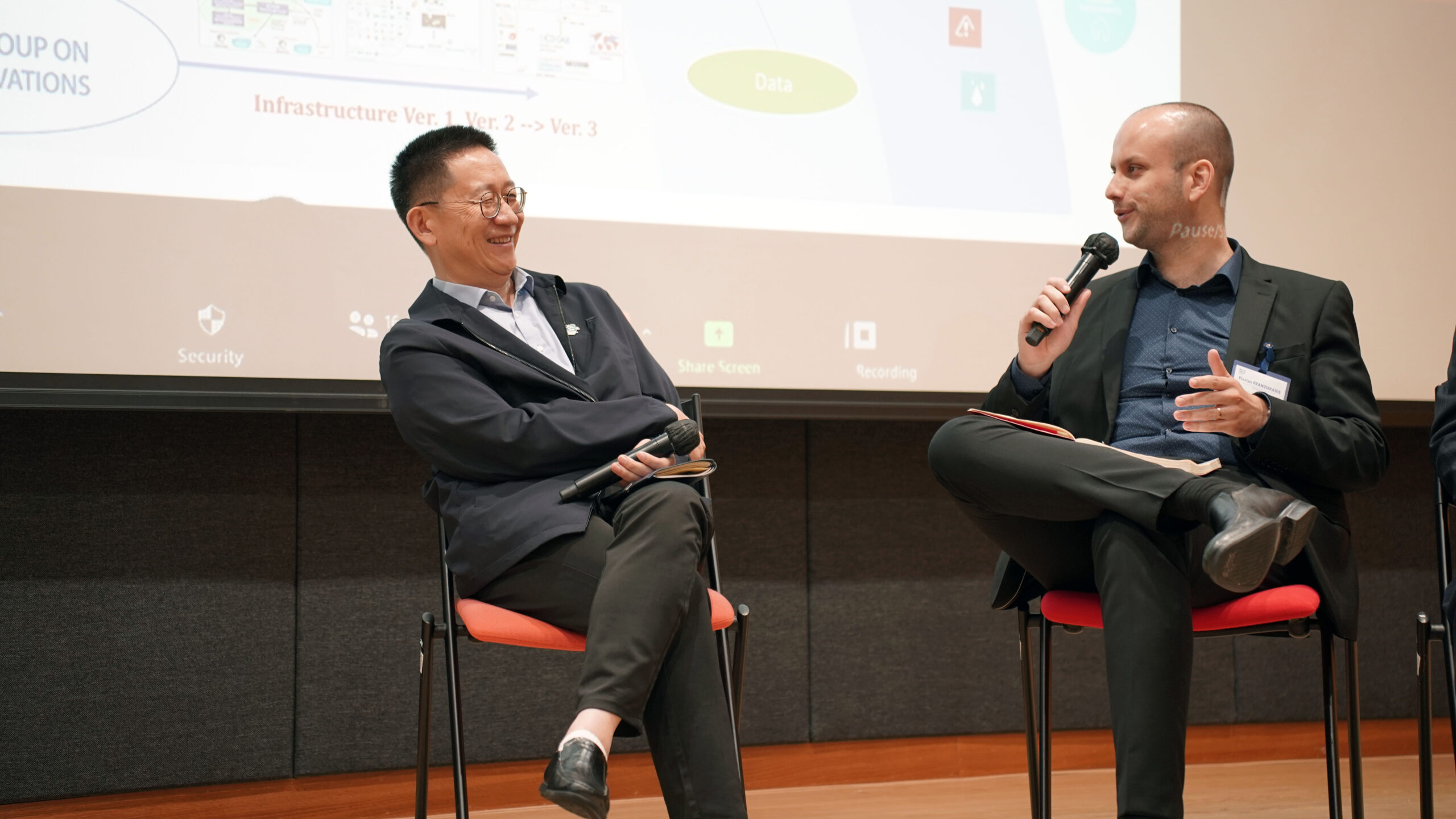The 6th Asia-Oceania Group on Earth Observations (AOGEO) Workshop was recently held successfully at the University of Macau (UM). Over 80 representatives from 18 countries, including Japan, Australia, Nepal, Thailand, the Philippines, Cambodia, Pakistan, and Bangladesh, attended the event, with over 6,700 participants joining online. The conference was organized by the National Remote Sensing Center of China and the AOGEO, co-sponsored by UM and Aerospace Information Research Institute, Chinese Academy of Sciences (AIRCAS), and live-streamed on the online platforms of the Journal of Remote Sensing and the International Journal of Remote Sensing. The theme of the workshop is “Demand-driven Innovation of Earth Observation Application Technology,” aiming to promote regional collaboration in the Asia Oceania region and to deepen the integration of Earth observation innovation with regional social development.
Zhao Jing, Director of the National Remote Sensing Center of China, Cheng-Zhong XU, Dean of the Faculty of Science and Technology of UM, representatives of the GEO Secretariat, and three co-chairs of the GEO delivered the opening speeches. Zhao Jing shared AOGEO’s contributions in Earth observation applications, talent cultivation, and enhancing the Earth observation capabilities in developing countries. She also emphasized that the workshop provided an important platform for exchanging and sharing Earth observation data in the Asia Pacific region, promoting technical cooperation and sharing of achievements among countries, international organizations, and institutions. She expressed her hope that the construction of Earth observation capabilities in the Asia Pacific region could be further promoted in the near future, and that effective communication channels would be established for young scholars in the region.
The international workshop offered a deep discussion regarding typical issues, focusing on the three sub-regional comprehensive research demonstration areas of the Himalayas, the Mekong River Basin and the Pacific Island countries, the formulation of the third decade strategic plan of the Earth Observation Program, and the global ecological environment. Carry out in-depth exchanges and discussions on important topics such as environmental monitoring and mapping, earth observation data sharing and knowledge base, application and capacity building oriented to regional needs. The closing ceremony of the workshop also successfully released the “Declaration of the 6th Asia Oceania GEO Symposium,” advocating for continued deepening of regional cooperation, continuous strengthening of Earth observation data and knowledge sharing, increasing participation of various sectors, especially young scholars, in the GEO program, building an innovative cross-disciplinary, cross-industry collaboration ecosystem, empowering the development of developing countries, and promoting regional balanced development.
As a co-organiser for the first time, UM aims to strengthen intergovernmental cooperation mechanisms and to promote technical cooperation, and share Earth observation resources and facilities within Asian region. By using Earth observation technology to solve practical problems and applying it to key areas of social and economic development, UM hopes to contribute to the response to the challenges of sustainable development, global warming, and major disasters.
第六屆亞洲大洋洲區域綜合地球觀測計畫(AOGEO)國際研討會早前於澳門大學成功舉辦。來自世界各地包括日本、澳大利亞、尼泊爾、泰國、菲律賓、柬埔寨、巴基斯坦、孟加拉等18個國家的80余名代表參加了大會,6,700多名代表透過線上參與。是次會議由國家遙感中心、亞洲大洋洲區域綜合地球觀測計畫組織主辦,並由澳門大學和中國科學院空天資訊創新研究院共同協辦,並在學術期刊《遙感學報》和《國際遙感學報》線上平台同步直播。會議以“需求驅動的地球觀測應用技術創新”為主題,旨在促進亞大區域協同,推動地球觀測創新成果與區域社會發展的深度融合。
國家遙感中心主任趙靜、澳門大學科技學院院長須成忠、地球觀測組織秘書處官員代表、來自中日澳的3位該組織聯合牽頭人出席本次會議並致辭。趙靜在致辭時肯定了組織在地球觀測綜合應用、青年人才培養、發展中國家地球觀測能力賦能等方面的貢獻。同時表示研討會為亞太區地球觀測資料分享及應用提供重要交流平台,促進區內成員國、國際組織和地球觀測機構間的技術合作和成果分享。她期望未來繼續推動亞太區域地球觀測能力建設,為區內廣大青年學者提供有效的交流渠道。
是次國際研討會深入討論區域熱點和典型問題,圍繞喜馬拉雅地區、湄公河流域和太平洋島國等三個亞大區域綜合研究示範區、地球觀測計畫的第三個十年戰略計畫制定、全球生態環境監測與製圖、地球觀測資料共用與知識庫及面向地區需求的應用和能力建設等重要專題開展深入交流與討論。會議閉幕式上也順利發佈《亞洲大洋洲區域綜合地球觀測計畫第六屆國際研討會宣言》,宣言倡議持續深化區域合作,不斷加強地球觀測資料和知識共用,提高地球觀測計畫各界尤其是青年學者的參與度,構建跨學科、跨領域、跨行業的創新協作生態,賦予發展中國家開發能力建設,持續推動區域平衡發展。
澳門大學首次作為協辦單位,期望能通過舉辦研討會,加強亞太地球觀測組織政府間合作機制,積極推進國家及區域內的地球觀測資源設施的互聯互通、技術合作與共用服務,利用地球觀測技術解決區域實際問題,促進國家在社會經濟關鍵領域的應用,共同應對可持續發展、全球暖化和重大災害的挑戰。





